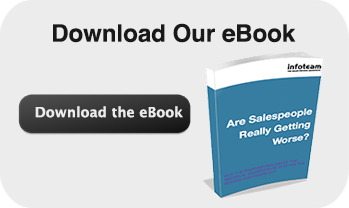 No Coach. No Sale. It’s as simple as that most of the time. If you are trying to make a complex sale into a large organisation you don’t already know then without some sort of insider knowledge you don’t really stand a chance.
No Coach. No Sale. It’s as simple as that most of the time. If you are trying to make a complex sale into a large organisation you don’t already know then without some sort of insider knowledge you don’t really stand a chance.
Coaches – who, what and why?
A Coach, sometimes called a sponsor, is someone inside (or outside) the customer organisation who is willing and able to help you make a more effective sales pitch. Coaches give you crucial information and feedback, especially about the Buying Centre. They help you because they trust you. In return you help them shine within their organisation.
How our client worked with a Coach
Perhaps the best way to illustrate the value of a good Coach is to tell you how a client in the insurance industry successfully made a major sale with the help of a Coach. The person who became a Coach contacted our client about pitching for a substantial piece of business. The person was relatively junior and had been given the job of drawing up a list of potential suppliers.
Our client asked intelligent and well informed questions which led the person to go back to her boss and suggest modifying the objectives while recommending the client be asked to pitch. Her boss saw the value of her suggestions so her credibility within the organisation was increased and as a result she began to trust our client’s salesperson.
Trust
Trust is the medium of exchange between you and your Coach. If they trust you they will give you the coaching you need to make the best possible pitch. And of course you have to trust them. Not all coaches are what they seem but we will come on to that later.
Trust is hard to build but if you always act professionally you can build trust quickly. Ask intelligent questions. Challenge the customer’s needs. Always do what you say you will do on time. Go the extra mile. Never promise something you can’t deliver. Say “no” if you cannot fulfil a requirement.
Insights into the Buying Centre
Corporate organisations are usually very complex. But you know that. What you don’t know is exactly what the various personal relationships are among the Buying Centre members and their personal goals. Let me give you an example from our own business.
Part of what we were selling to the customer was a software tool to make it easy for their salespeople to use our methodology. Our Coach told us that a key member of the Buying Centre had recently been responsible for introducing CRM software into the organisation and it had not gone well. The take up was poor and his reputation had suffered. One of our reference clients had previous experience of using their CRM tool alongside our software and this had resulted in a much better adoption of CRM. So we were able to make a very strong case to this individual for buying – it would turn his previous failure into a success and help him mend his reputation.
A sounding board
Another key role for the Coach is a sounding board. You can’t expect a Coach to always know what the Buying Centre will like or hate, but they can certainly give you a good idea. Our client in the insurance industry developed such a good relationship that their Coach was willing to give feedback to their Opportunity Roadmap. This was a key step on the way to winning the business.
The client took care not to over state the role of the Coach in the Opportunity Roadmap so as not to raise any suspicions. It is important that a Coach appears to be neutral. Coaches don’t have to be decision makers but the information they give you must be reliable.
Door openers
A Coach can give you access to people you would otherwise not get to speak to. In the case of our client in the insurance industry, they found that having got down to the last 3 companies – the ones who got to present – 2 key regional CEO’s would be unable to attend the presentation. Though they would still be vital in the final choice of supplier.
The Coach was able to arrange for our client to meet the regional CEO’s and take them though the proposal before the presentation. And the final decision went the right way.
Not all coaches are what they seem
The Coach in the example I have quoted above was genuine. The client earned her trust and in return she provided insights, information and help that was vital in winning the pitch. As a result her standing within the organisation was considerably increased.
But unfortunately not everyone is as honest. Some people may seem to be helping you while they play complicated games with your competitors. Or people may be appearing to help and encourage you when all they want is to keep you in the game. This increasingly happens in formal RFP driven reviews that are dependent on a minimum number of proposals being submitted.
It can be hard to spot when this is happening; you just have to use your judgement.
Questions to challenge the way you work today
-
Do you usually have a Coach guiding you through pitches?
-
What do you do to develop a Coach?
-
How do you spot your competitors’ Coach?
Enjoyed this blogpost? Download our eBook:


